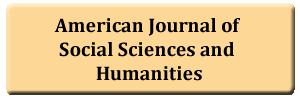Helping Non-English Speakers Speak English in the Workplace
DOI:
https://doi.org/10.20448/804.3.1.14.26Keywords:
Inclusion, Diversity, Language, Learning english, Non-native english speakers.Abstract
Technology, globalization and internationalization of organizations have made it easier for the modern labor force, which is one core factor of production, to exhibit all features of mobility. Consequently, employers today are increasingly relying on employees from multicultural backgrounds to fill diverse positions in the organizations. Language differences are among the features that characterize the cultural diversity in these organizations. Therefore, it comes as no surprise that majority of the employees absorbed into many workforces have limited language proficiency, a skill that is considered critical in determining the success of any operation in the competitive and product-intensive nature of the modern markets. The discussion confirms that programs aimed at proving English proficiency lessons to the non-English speakers in the workplace are insufficient in the absence of supportive organizational culture and inclusivity of the lesson beneficiaries in the decision regarding the choice of the best model of teaching or training. This paper explores the mechanisms through which the non-English speaking employees can be helped in the workplace. The aim of the paper is to provide a consortium of strategies that employers can use in facilitating the inclusion of non-English speakers in the workplace. The solutions offered in this paper are developed from the challenges presented to the non-native English-speaking employees in the workplace.



